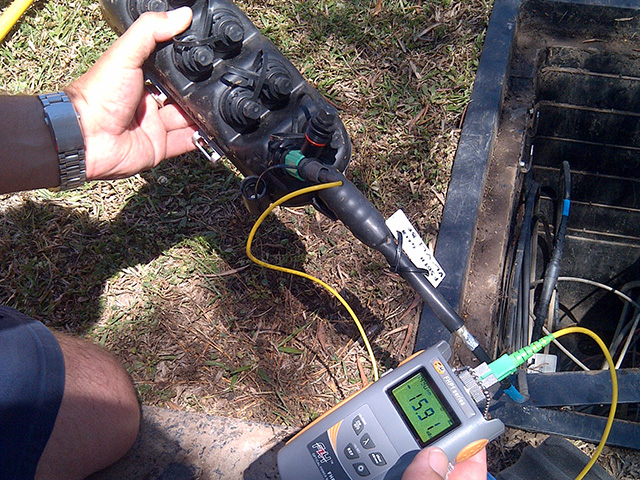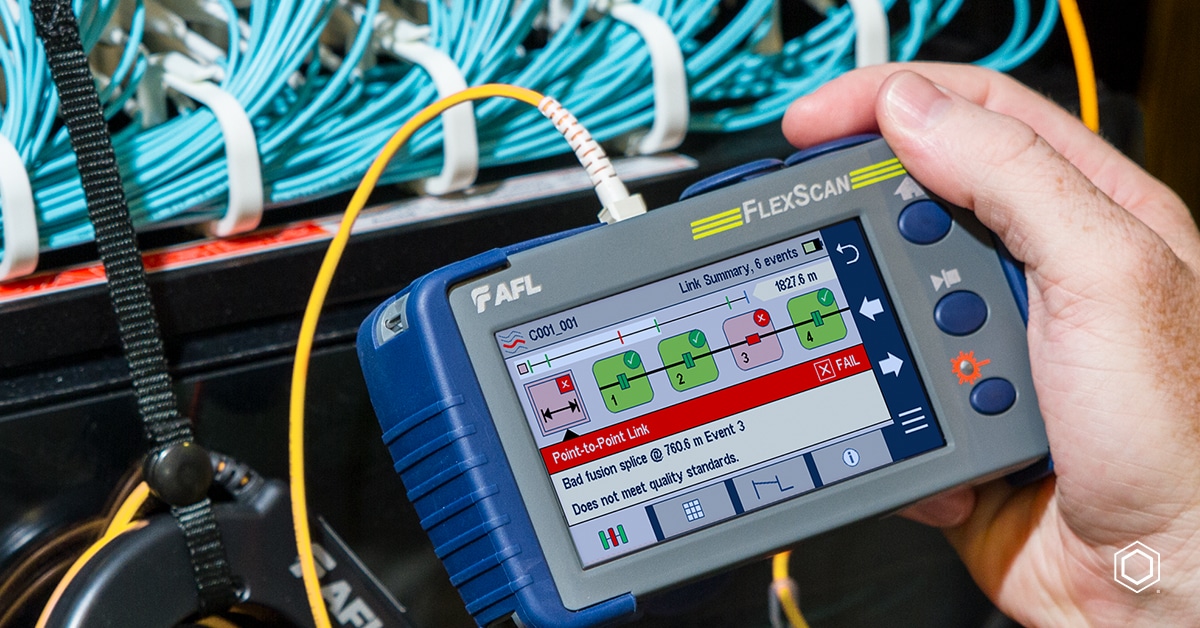The use of ofda improves fibre evaluation with innovative optical technology.
The use of ofda improves fibre evaluation with innovative optical technology.
Blog Article
Exploring the Conveniences of Optical Fiber Evaluating for Enhanced Communication Systems
The significance of optical fiber testing in modern interaction systems can not be overemphasized, as it acts as a structure for guaranteeing network integrity and performance. Making use of advanced approaches such as Optical Time-Domain Reflectometry (OTDR) and insertion loss evaluation, organizations can not just determine faults yet additionally enhance their configurations. This aggressive screening method has extensive implications for signal quality and operational efficiency, raising the concern of just how these practices contribute to long-term sustainability in an ever-evolving technical landscape. Recognizing these characteristics is vital for stakeholders aiming to keep a competitive side.
Importance of Optical Fibre Testing
The relevance of optical fiber testing can not be overstated in today's data-driven setting. As companies increasingly rely upon high-speed data transmission for daily operations, the integrity and efficiency of optical fibre networks are critical. Evaluating guarantees that these networks can sustain the vast quantities of information produced and transferred effortlessly, cultivating effective communication and connectivity.
Optical fiber testing offers several important features, including verifying installation quality, determining potential faults, and figuring out overall system performance. Routine screening can protect against expensive downtimes and solution interruptions, permitting companies to preserve functional connection. Moreover, it aids in conformity with market requirements and laws, guaranteeing that fibre optic installments satisfy called for requirements for safety and dependability.
In addition, testing can boost the long life of fibre optic systems. By proactively identifying problems such as signal loss, attenuation, or adapter failings, companies can address problems before they escalate, thus expanding the life of their infrastructure. In recap, optical fiber screening is not simply a technical requirement however a critical investment that improves network dependability, maximizes efficiency, and inevitably sustains the growth and performance of contemporary communication systems.
Trick Checking Approaches

OTDR is an important technique used to identify mistakes, step splice losses, and analyze the total honesty of a fibre optic web link. By sending out a pulse of light down the fibre and examining the shown light, specialists can identify places of mistakes and examine the network's performance over cross countries.
Insertion loss screening measures the quantity of signal loss that takes place when light travel through a link or splice. This technique is vital for validating that connections fulfill given loss thresholds, which is important for keeping optimal efficiency in interaction systems.
Optical return loss screening evaluates the quantity of light mirrored back towards the source due to flaws in the fiber or links. High return loss worths show far better efficiency and reduced signal degradation.
With each other, these screening methods provide an extensive analysis of fibre optic networks, ensuring their dependability and performance in diverse communication applications.
Influence On System Performance
Effective optical fibre testing directly affects the total efficiency of interaction systems. By making sure the honesty of fiber optic cords, testing identifies potential mistakes such as depletion, splice loss, and adapter imbalance. These problems can substantially deteriorate signal high quality, resulting in disruptions and decreased information transmission rates.

Moreover, regular optical fiber testing adds to long-term system sustainability. It makes it possible for early discovery of deterioration, permitting timely upkeep and upgrades before significant failures happen. This not only extends the life expectancy Read Full Report of the framework however also guarantees that interaction systems stay affordable in regards to performance.
Cost-Effectiveness and Efficiency
Cost-effectiveness is a critical consideration in the implementation and maintenance of optical fibre networks. Applying robust optical fibre screening procedures can substantially reduce operational expenses by recognizing issues before they rise right into major issues. optical fibre diameter analyser. By finding mistakes, attenuation, and other performance limitations early, companies can avoid costly repair services and downtime, which can interfere with solutions and lead to income loss
Additionally, efficient testing techniques simplify the installment process, allowing technicians to function better. This translates to lower work costs and faster project conclusion times. Advanced testing equipment, such as Optical Time Domain Name Reflectometers (OTDRs), allows an accurate assessment of fibre top quality, making certain that only optimum products are used, therefore lessening waste.
Regular screening likewise adds to much better resource appropriation. By comprehending the network's efficiency, companies can make educated choices regarding upgrades and expansions, making certain that investments are made where they are most required. In summary, optical fiber testing improves cost-effectiveness and efficiency, sustaining the lasting sustainability and competitiveness of interaction systems in a progressively requiring market.
Guaranteeing Long-Term Integrity
Applying extensive optical fiber testing not only boosts cost financial savings and operational effectiveness yet also plays a critical duty in ensuring the long-lasting integrity of communication networks. Constant screening techniques, consisting of attenuation and bandwidth evaluations, assistance identify potential destruction in fibre performance prior to it brings about service disruptions.
By utilizing innovative screening approaches, network drivers can pinpoint mistakes or weaknesses in the fibre facilities, allowing for prompt removal. This aggressive approach minimizes downtime, making sure that interaction systems stay practical and efficient. Furthermore, regular screening adds to the growth of an extra resilient network, as operators can adjust and maximize their facilities based on real-time data insights. robotic vision.
Furthermore, guaranteeing compliance with market criteria through optical fiber testing strengthens Check This Out the top useful reference quality and integrity of the whole communication system. This adherence not only boosts self-confidence among stakeholders yet likewise lines up with regulatory requirements, which are significantly rigid.
Final Thought
In conclusion, optical fibre screening offers as an essential part in improving communication systems. By utilizing various screening techniques, such as OTDR and insertion loss assessments, networks can attain ideal performance and dependability.
Report this page